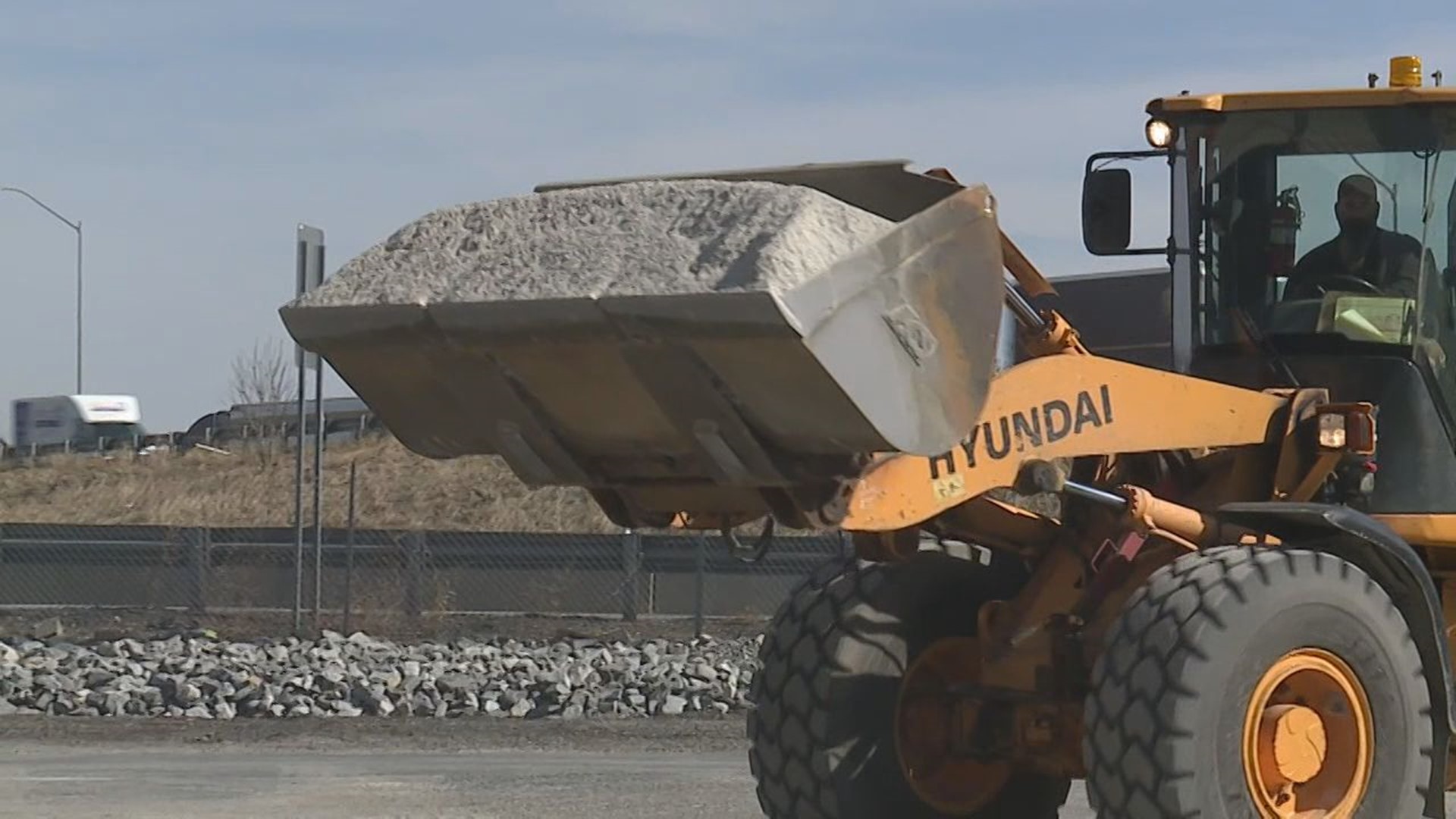LANCASTER, Pa. — Salt is often the solution when it comes to keeping our roads safe during winter weather. A study by the University of Toledo found that the use of deicing salts has tripled over the past 45 years in the United States.
However, once that salt washes away, it could have some detrimental impacts to our environment.
This is a concern for Justin Mansberger, a water resources educator at Penn State Extension.
“As the snow and the ice and everything melts, that just carries away all of that water and all of that salt… into our waterways and mainly like small rivers and streams and stuff like that," says Mansberger.
Increased salinity in waterways could harm or kill fish, vegetation, and more.
“It can have a really, kind of, cascading effect not only in the stream but also on wildlife that might also feed from the stream, or drink from the stream, or anything like that," Mansberger tells FOX43.
This is most often an issue in the winter, when road salt gets washed away from roadways with snow melt. Mansberger says there is often a spike in salinity levels a day or two after big storms and other salting events.
Mansberger is currently working with the Izaak Walton League of America Winter Salt Watch program to measure salinity levels in rivers and streams in Pennsylvania. It's a program that anyone is able to join and help take measurements in waterways near them.
In Pennsylvania, both local and state agencies are tasked with road safety during winter storms. Mike Keiser, Acting Deputy Secretary for Administration at PennDOT, says that the environmental issue of rock salt is something they’re aware of.
“For us, it’s a balance. We’re certainly aware that if streams and things like that end up with a high content of salt that that’s not good," says Keiser.
But that balance is also weighed with the cost of salt, which is a relatively cheap option when it comes to road safety.
Keiser says that using technology to help reduce the amount of salt they use is one way they’re able to help with this balance.
“We use a lot of nationally recognized best practices for salt application," he says.
This includes managing the rate at which trucks disperse salt and watching the forecast to make sure that they are using the proper resources at the right time, and avoiding any waste.
When it comes to rock salt alternatives, there are some being developed, such as pickle brine. Mansberger says he is hopeful for these options.
“I’m hoping that as we use more salt, and have the need for more salt, we use more of these alternatives and explore more of these alternative options," Mansberger says.
PennDOT tells FOX43 they are also open to products that become available that have a lesser impact on the environment.

